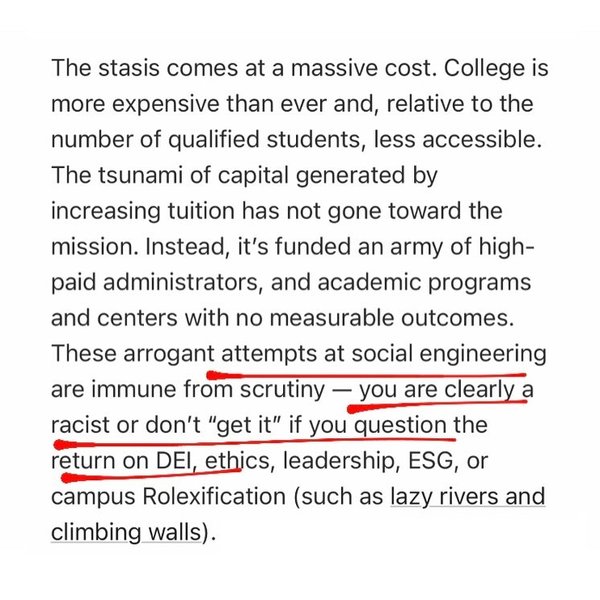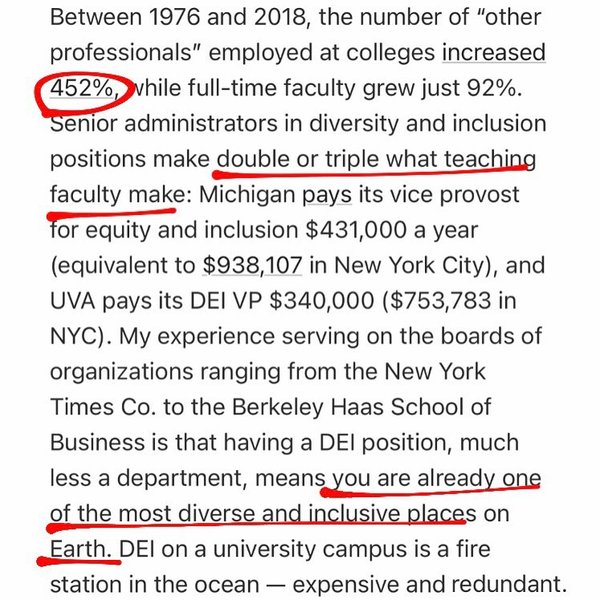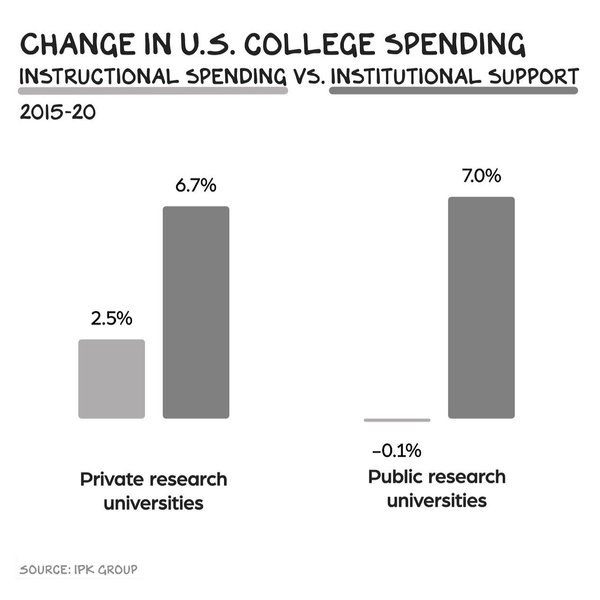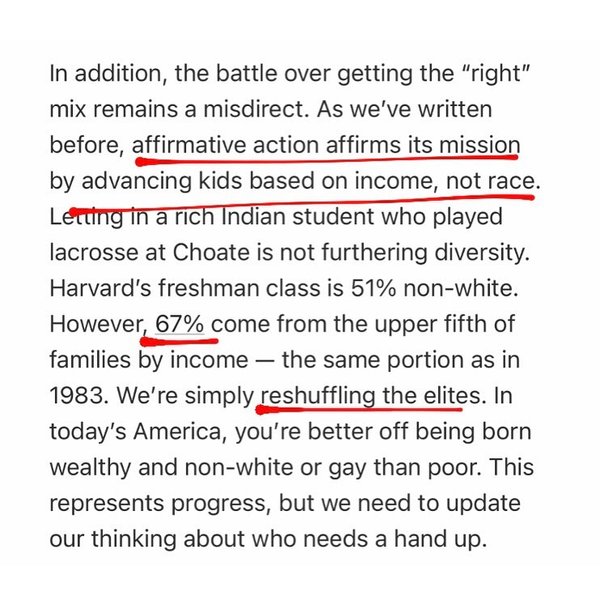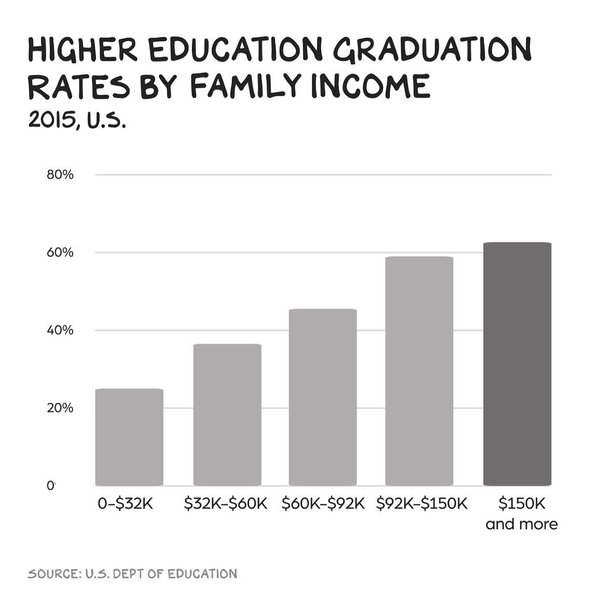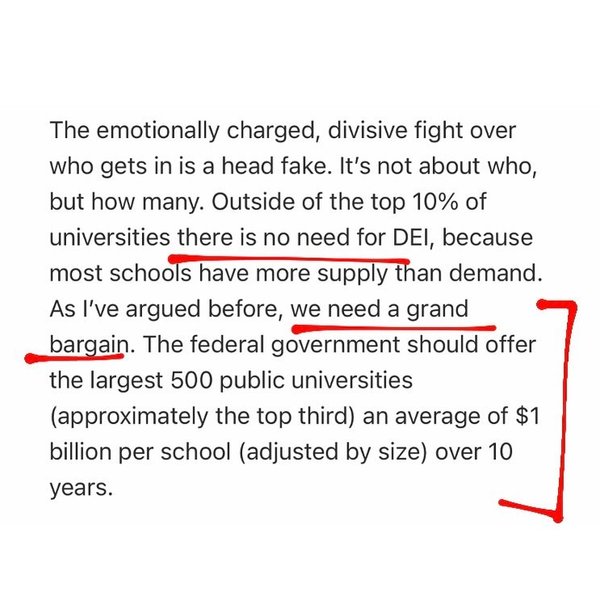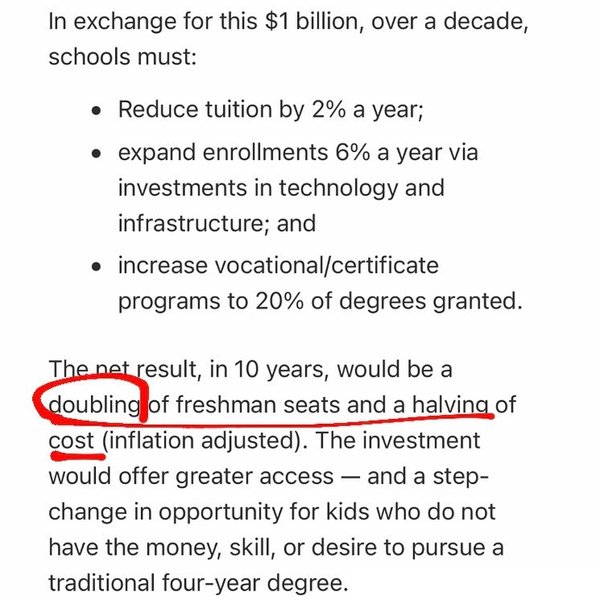
Higher Education in America

Wrote about what I see as rot at universities — administrative bloat, fixation on the wrong metrics, and tuition increases vastly outpacing inflation.
A greater factor in college success/graduation isn’t race, but family income. Thus, instead of focusing on DEI, we need not just more people of color, but more of every... See more
instagram.comCore to alleviating the social and economic problems in the 2030s is utilizing the population and re-creating upward mobility. The university is at the heart of both the problem and the solution. It also becomes the center of a political battle.
George Friedman • The Storm Before the Calm: America's Discord, the Coming Crisis of the 2020s, and the Triumph Beyond

accessibility of higher education in the U.S.
Gerry Valentine • The Thriving Mindset: Tools for Empowerment in a Disruptive World
providing students with the theoretical background and classroom practice to explore how they can best pursue their passions in rough water. Natural scientists might focus on the increased politicization of science in a turbulent world and what that may imply for their own work. Students with a talent for project-based community work might be
... See more